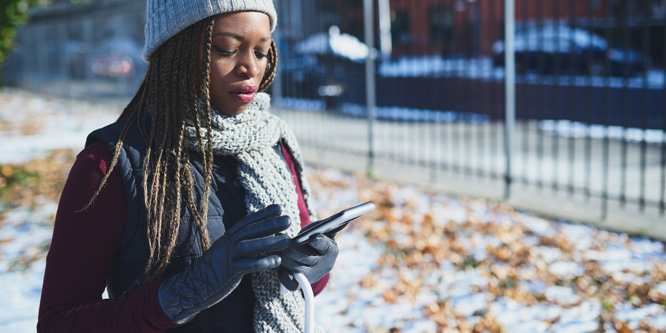
Do Black Friday mobile app downloads portend holiday season winners?
The 2019 Christmas selling season is off to a fast start, and for a growing number of Americans, researching and buying gifts begins and ends with their smartphones.
Salesforce, for example, reported that 60 percent of all digital orders on Thanksgiving were placed using a mobile device. Adobe reported that 39 percent of all online sales on Black Friday were made with a smartphone. You get the idea. So, is it crazy to think that at least one predictor of Christmas season success is the number of mobile app downloads consumers made before heading out or staying in to shop?
According to SensorTower’s Store Intelligence data, the number of first-time iOS shopping app downloads on Black Friday grew eight percent over last year to more than 1.8 million. The top 10 most downloaded shopping apps represented nearly 29 percent of the total.
Number one on the Black Friday shopping app download list this year is Walmart. The retailer’s app was downloaded 113,000 times on Black Friday, a 23 percent jump over 2018.
Walmart pushed Amazon’s app off the top spot this year to number two. The e-tailing giant’s app had 102,000 first-time installs on Black Friday, a 10 percent decrease from last year. SensorTower points out that the existing widespread use of Amazon’s app likely played a significant role in its lower number.
Rounding out the rest of the overall top 10 shopping app downloads made on Black Friday are Target, Best Buy, GOAT, Nike, Kohl’s, Wish, Macy’s and Adidas.
The top downloads among retailers and brands with a heavy brick and mortar presence were: Walmart, Target, Best Buy, Nike, Kohl’s, Macy’s, Adidas, H&M, J.C. Penney and Sam’s Club.
The top e-tailer/marketplace downloads were: Amazon, GOAT, Wish, eBay, SHEIN, Fashion Nova, Wayfair, Poshmark, StockX and OfferUp.
Discussion Questions
DISCUSSION QUESTIONS: Assuming there’s a correlation between mobile app downloads and Christmas selling season success, how should retailers and brands leverage this advance information? How do you see mobile technology affecting the business of retailing in the near- and long-term?


The only thing that retailers have to “win” is a profitable share of the consumers’ disposable income. If a retailer makes enough sales (less returns) to be profitable, they have been successful but they don’t have to “win.”
Mobile downloads is a proxy and leading indicator. But the number of downloads is minuscule compared to the numbers on mobile usage itself. That tells us couple of things. 1.) The in-app experience is not great 2.) There is no additional incentive to use the app.
Retailers would do well to turn serious attention to their apps. There is higher level of stickiness and conversions from the app users. More targeted offers could be sent based on location proximity.
While I understand the desire to entice people to download an app, the vast majority of people only download retailer apps for the discounts, and many simply delete the app once they have secured their discount. We are once again training shoppers to expect discounts, and when we (far too often) fail to leverage the rich data available from the apps, we fail to add value to our relationship with the shopper. We need to think beyond Black Friday and either eliminate the barrier that downloading apps represents, or put the apps to good use all year long.
This is great news. Amazon has competition. BUT apps are a tool on the path to purchase, not the whole solution. Apps work based on an existing strong brand promise. They add to the brand promise. They are not the solution to a broken brand promise.
Technology has advanced such that websites can provide similar to app experiences without a full fledged download and responsive design is almost a standard. However, apps are great for loyalty, locking in regular users and building community. The fact is that apps are typically not net new customers (unless incentivized) downloading, but those who already use and trust the brand. Hence, success from apps is more share of wallet than share of market.
Lastly, app downloads should really be measured as net downloads and usually through Jan-Feb to account for returns. Retailers have to be careful about the holiday rush of download discounts as customers can even more easily delete their apps once they’ve gotten their 15% off.
That said, mobile tech has deep branding and ops value, especially if it offers customer specific functionality that makes shopping a better experience. Retailers need to tap into this type of value-add for mobile apps to become an influencing sales tool.
Most often, there is no need to download retailer apps in order to make a purchase via mobile device. As long as the website is convenient and intuitive, shoppers needn’t download a thousand apps just to make holiday purchases.
Downloading a mobile app doesn’t necessarily have a correlation with selling success. Many consumers will download a retailer app if it means a greater discount or access to a specific promotion. The bigger question is, how do you encourage customers to keep and use the app for the long-term?